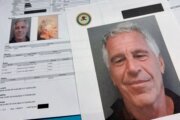ABDI GULED
Associated Press
MOGADISHU, Somalia (AP) — Somalia’s government on Wednesday offered an amnesty to fighters with al-Shabab, the Islamic extremist group whose leader was targeted Monday night in a U.S. airstrike.
Following a Cabinet-level security meeting on Tuesday, Somali authorities are giving al-Shabab militants 45 days to take up the offer, Security Minister Khalif Ahmed Ereg told reporters Wednesday in the Somali capital of Mogadishu.
He said the government “will create a better livelihood to build their future for those who meet the deadline.”
The offer of amnesty comes after a U.S. airstrike that targeted al-Shabab leader Ahmed Abdi Godane, whose fate remains unclear as U.S. and Somali officials assess the outcome of the attack.
Somali forces, backed by African Union troops, last week launched an offensive on al-Shabab’s last strongholds in southern Somalia, where the militants are believed to plot attacks across Somalia that have left scores dead this year. Al-Shabab is believed to have thousands of fighters in its ranks, fighting to impose Sharia law on Somalia, but the group faces increasing military pressure from African Union forces that helped to oust the militants from Mogadishu in 2011.
Al-Shabab has since resorted to tactics that include suicide bombings and assassinations of government officials.
Godane, the group’s spiritual leader, claimed responsibility for a deadly attack a year ago on an upscale mall in neighboring Kenya, whose government has sent its army troops to fight al-Shabab in Somalia.
Somali authorities are trying to verify whether Godane, 37, was killed or wounded in the U.S. strike, government spokesman Ridwaan Abdiwali said Wednesday.
Somalia’s government is certain that the strike hit “a gathering” of leaders of the Islamic extremist al-Shabab group and they are “in the process” of confirming who was hit in the attack Monday night, he said.
Abdiwali praised U.S. support in the war on the militant group, saying close military collaboration had helped to weaken al-Shabab.
The U.S. confirmed on Tuesday that the strikes, conducted by special operations forces using manned and unmanned aircraft, targeted Godane. The U.S. launched the operation based on “actionable” intelligence, said Navy Rear Adm. John Kirby, a Pentagon spokesman.
The U.S. strikes hit a car in which Godane was traveling after he left a meeting of the group’s top leaders in Somalia’s Lower Shabelle region and Godane “might have been killed along with other militants,” a senior Somali intelligence official told The Associated Press on Tuesday. At least six militants were killed in the attack, said a militant commander, Abu Mohammed, but he would not say if Godane was among the victims.
Al-Shabab remains strong in some parts of southern Somalia, including the coastal city of Barawe, and Somali government spokesman Abdiwali noted that it may take some time before there is confirmation about Godane’s fate.
Godane, also known as Mukhtar Abu Zubeyr, was publicly named as leader of al-Shabab in December 2007 and has since exercised command responsibility for the group’s operations across Somalia, according to the National Counterterrorism Center.
Under his direction the Somali militants forged an alliance with al-Qaida, and in 2012 the U.S. offered a reward of up to $7 million for information leading to his arrest.
___
Associated Press reporter Rodney Muhumuza in Kampala, Uganda, contributed to this report.
Copyright 2014 The Associated Press. All rights reserved. This material may not be published, broadcast, rewritten or redistributed.







